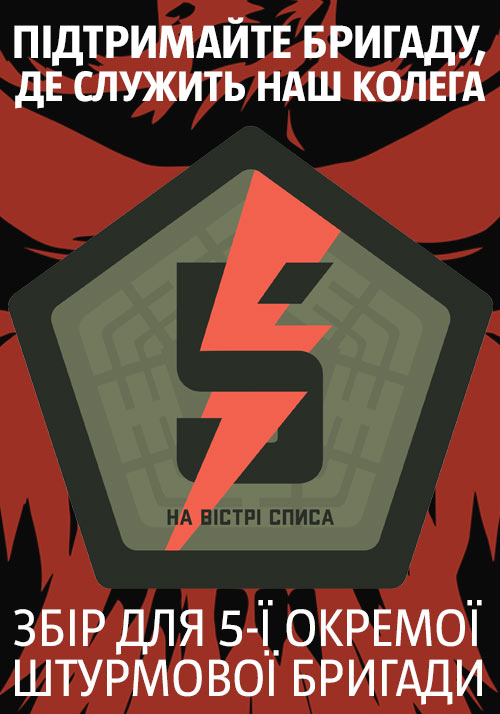There were mixed reactions in the German public to this. Why now, in the midst of a brutal war which has taken thousands of lives? Why is Kyiv focusing on events that occurred 90 years ago? By what means will the recognition of Holodomor help Ukrainians in their struggle against Russia and would it really strengthen Kyiv’s position on the international arena? Similar questions have been raised not only by Germans. We outlined three main arguments which will help elaborate to foreign audiences as to why the recognition of Holodomor as genocide is crucial.
Firstly, this is a question that serves the narrative of Ukraine through the eyes of a political class and society of a certain country. Recognising Holodomor as genocide means viewing Ukraine without colonial glasses. In the Soviet-imperial conception of history, the famine of 1932-33 was a disaster that was shared across other regions of the Soviet Union, thereby affecting different peoples. In reality, Holodomor was an artificial famine. This was a genocidal instrument of subordinating Ukrainians by the stalinist and imperial-communist project at hand. Artificial hunger, organized by Moscow on Ukrainian land aimed to break national resistance and uprising of Ukrainians, which in the period of 1917-22, attempted to create their own independent nation state, and subsequently continued to resist the Soviets.
The recognition of Holodomor as genocide – is an act of acknowledgement of this historical reality. Such a step would open a unique opportunity to view Ukraine not as debris left over after the collapse of the Soviet Union that freely drifts to an alternative geopolitical epicenter, but a nation that resisted its colonization for centuries, often being victim of imperial wrath – tsarist, Soviet, and now – Putinist.
Secondly, understanding the genocidal nature of Holodomor is an important step in understanding the current war. This is not a territorial dispute between two countries that went too far. The persistent resistance of Ukraine, which has inspired so many in the West, is not a result of careless concessions made by Volodymyr Zelensky, who actually seeks victory for Ukraine regardless of its cost. Regardless of the personalities of the leading figures in Kyiv, Ukrainians are nonetheless aware that Putin’s aim is not to ‘demilitarize’ or ‘denazify’ Ukraine but to achieve the destruction of its sovereignty and national identity. Evidence of Russia’s atrocities and war crimes committed on occupied territories from 2014, implies that Russia’s aggression aims to force Ukrainians to stop being Ukrainians and bring them back to another one of Moscow’s imperial projects.
Ukrainian society is committed to ferocious resistance because its collective conscience and memory tells them so. The genocidal strategy deployed by Russian forces in Ukraine, which already brought the complete annihilation of cities – is a tradition of this empire, an old method of Moscow to ‘punish’ Ukrainians for insubordination. In response to the insubordination of Ukrainian Hetman Ivan Mazepa, tsar Peter I ‘punished’ his capital, the city of Baturyn: in the spring of 1708, Russian soldiers massacred 11 to 15 thousand local inhabitants including children, women and infants. In 1932-33, Stalin lashed out at Ukraine through the means of an artificial famine, which took the lives of 4 million people. Today, Putin is doing the same as seen with the massacre of Bucha and the ‘hecatomb’ (sacrifice) of Mariupol. Hence, the recognition of Holodomor as genocide, is an important step to understanding the essence of Russian imperialism and the dangers that it brings to all of humanity. Therefore, this grasp entails political responsibilities, as the recognition of a threat immediately requires action taken against it.
Read more: Pancakes with oil. How the Russian occupation awakened the Ukrainians` memory of the Holodomor
Thirdly, official recognition of Holodomor as genocide is a step to building truly profound partnerships with Ukraine. This is a signal that shows that a certain society, through the links of its government, has finally opened up and informed itself to view our history in its full entirety. Yes, this history is full of tragic episodes, but it deserves to be told and heard. Ukrainians do not have any victim mentality or complexes, and do not intend to speculate on their own traumatic past or present. Our much desired international partnerships need a deeper mutual understanding here.
Today, Ukraine strives for membership in the European Union, which corresponds to its historical aspirations. For us however, this means a lot more than the potential benefits of economic and political integration. For us, a European bearing is the return back to our homeland, a civilisation which we were extracted from by external imperial appetites. Hence, it is not only crucial to cooperate with the EU, but also to build a deeper mutual understanding between us and its many nations, with which we hope to have a joint future.

